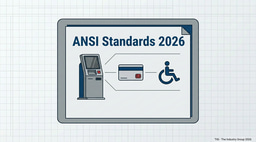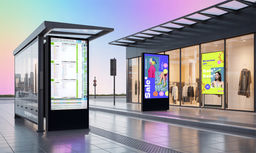Why “value engineering” an AV Technology Solution can be Short Sighted

Many of you that work in the AV industry like me will know the importance to spend a good amount of time early on in a project to really get to know your customer and understand their needs. We try to understand their current pain points and clarify their aspirational outcomes. We then come up with some technology solutions and concepts that fit exactly what they’re looking for. A part of this process includes putting together very detailed cost estimates of the technology options, which helps them with their budget planning.
Let’s take an example scenario of a presented AV technology budget coming in at five hundred thousand dollars for a particular project. Quite often the response back from the customer is “Well that’s a lot of money. That’s probably outside our budget or what we are thinking. Can we start to cut back on this by using value engineering?”. This is totally fine, and we understand that working to budgets is important. A customer should not be overspending or overcommitting financial resources where there is not a fair return. However, it’s important to realise that there is more than the initial investment in the AV technology that needs to be considered.
The first consideration is reliability. If a customer invests in AV systems that are designed very simply and don’t have a lot of complexity (i.e. they’re not over engineered), then they’re reliable. If they’re reliable over a long period of their life, say 5 plus years, the cost to maintain them is low. Not to mention the end users will rarely be inconvenienced by complex systems that constantly break down. This should all be considered in the overall picture of assessing cost.
Secondly, the customer should look at how easy it is to use these the new AV systems. If they’re really easy to use and the end users can avoid those embarrassing situations of wasting time trying to get the technology up and running, that is a cost saving as well. It’s a bit of a hidden cost. Not just the cost of time but the cost of embarrassment of putting the people on the back foot. When a person is not feeling confident or not feeling good about themselves, this could be costing money to the customer's organisation. Especially when they are trying to do important presentations in a meeting, or an important show in an entertainment venue. It all sort of accumulates.
Another aspect that is not always considered is the “WOW” factor. This is not relevant for all projects, maybe not in most projects, but if you’re trying to make some sort of an impression or create an experience for people that are either using or enjoying these AV systems, then it’s important to have something that’s a little bit extra, a little bit more exciting. The initial cost may look a bit expensive, but over the long term, you could pay it back with benefits like creating a brand, or creating that experience people are talking about. This may not bring costs down but is potentially bringing money back in to a customer's organisation to help recoup that initial outlay.
The last consideration is the uptake of use of the new technology. And that’s really important. I have not met a customer so far that has not been really focused on getting the uptake of their new technology to be as high as possible. That’s the whole purpose, isn’t it? To invest in the new AV technology so that people will use it and have better outcomes in whatever it is that they do. Whether it be in business, or in education, or in entertainment, or whatever field they’re in.
So, that’s really it.
Don’t just look at the initial upfront ticket price of new AV technology. Consider all other items that make up the bigger picture of cost, and remember, it’s an investment over the long term.
-
Xchange Advocates are recognized AV/IT industry thought leaders and influencers. We invite you to connect with them and follow their activity across the community as they offer valuable insights and expertise while advocating for and building awareness of the AV industry.







Please sign in or register for FREE
If you are a registered user on AVIXA Xchange, please sign in
Some really good points to consider when investing in new technology. Thanks for sharing @David Allara!
Great Post !
Thanks for sharing it !
David, some great insights here. Particularly the point you make about Uptake, as this ultimately drives the real value extracted (over time) by the customer in their AV investment.
Thanks so much for sharing.